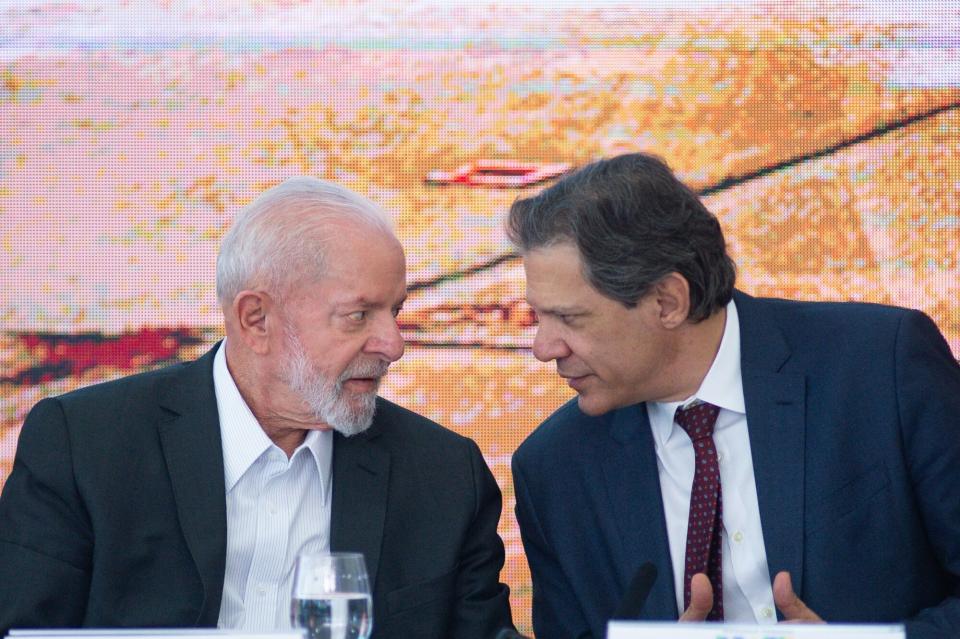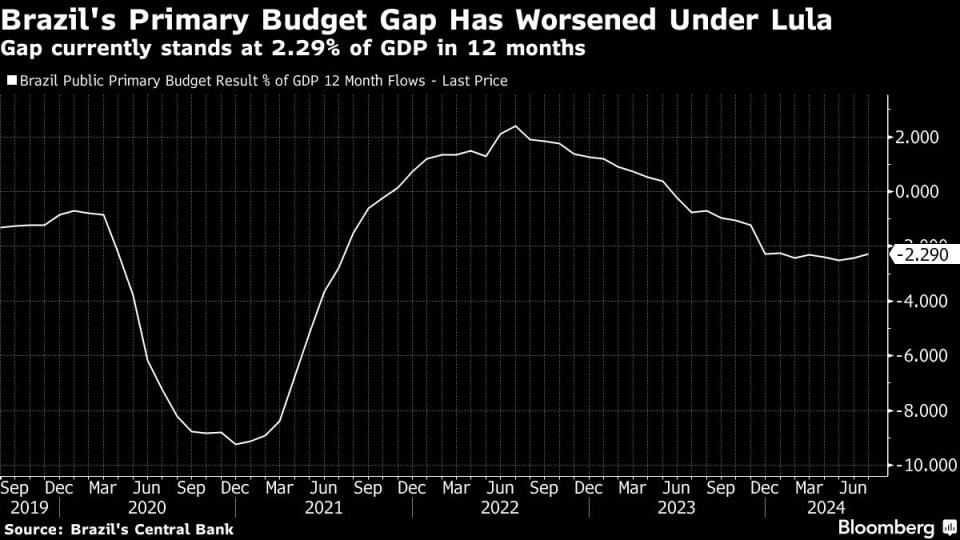Brazil President Lula Set to Unveil Budget Plan That Won’t Please Anyone
(Bloomberg) -- Brazil President Luiz Inacio Lula da Silva is set to release a budget plan for next year that is likely to displease both financial markets and his leftist political allies.
Most Read from Bloomberg
Dense Cities With Low Emissions Suffer Most From Air Pollution, Study Finds
Intergenerational Housing Could Help Older Adults Combat Loneliness
As Rural Hospitals Shutter Maternity Wards, Urban Ones Follow
The proposal, which the government plans to unveil Friday, neither includes the amount of new investments Lula’s Workers’ Party wants to boost growth nor the structural spending reductions that will produce the decline in public debt sought by investors, according to people with knowledge of the matter.
Put together, it risks to increase scrutiny of Finance Minister Fernando Haddad, who has already scaled back government ambitions of a surplus in 2025.
Brazil’s fiscal policy represents a flashpoint between Lula’s administration and nervous financial markets, with broad repercussions for the economy. Spending concerns weigh on local assets and dragged the real toward a record low this year. While the government has vowed to improve the lives of ordinary citizens through greater expenditures, investors blame the extra outlays for spurring inflation and setting the stage for interest rate hikes as soon as next month.
Haddad and his team halted a currency rout in July by announcing 25.9 billion reais ($4.6 billion) in spending cuts for next year. But after he focused primarily on generating new revenues in 2024, investors are now demanding substantive spending reductions that will have deeper effects on the fiscal trajectory of Latin America’s largest economy.
“Market eyes will be on spending,” said Andrea Damico, chief economist at Armor Capital. “There is concern not only about social security spending, which has grown significantly this year, but also about other indexed expenses, such as health and education. Therefore, any suspicion of underestimation in these mandatory expenditures will be seen as very negative.”
The minister’s team has discussed structural changes to rules that propel spending, including above-inflation increases to the minimum wage which, in turn, is used as a reference point for social benefit payouts. But, so far no one has dared raise the topic with Lula, given the his opposition to the idea.
As a result, Haddad is once again turning to income measures, including a potential hike to taxes on interest on equity, to hit his fiscal target.
The problem is that, for the 2024 budget, the economic team underestimated some new revenue streams. For example, while railway concessions and negotiations with taxpayers were initially expected to yield some 90 billion reais in income, they are now seen generating under 50 billion reais.
“There is a big chance that it will come with the same problem as this year’s,” Jeferson Bittencourt, the head of macroeconomics at ASA, said about the 2025 budget.
There are also challenges on the spending side, where expenditures that are mandated by the constitution account for 90% of total outlays. Several key budget items, including some social benefits, are already growing above the limit set by Brazil’s fiscal rules.
Legislators have also grown accustomed to public resources to boost their standing among constituents. Budget amendments, which are a tool whereby the federal government transfers money to help fund their local projects, have driven spending higher and reduced the administration’s power to maneuver. Those outlays currently account for 27% of all discretionary expenditures.
Since his return to the nation’s top job, Lula has awarded allies with posts in investment-driven ministries such as airports and transportation. Without ample room to spend, he also risks letting them down.
The Finance Ministry declined to comment on this story, and the Planning Ministry said it won’t comment on the budget proposal until it is presented.
Haddad said earlier this week that he is comfortable with the 2025 budget and that its guidelines ensure a consistent fiscal trajectory.
The economic team has said it will aim for a balanced budget in 2025, meaning the government can say it eliminated the primary fiscal deficit, which excludes interest payments. Still, that goal hasn’t won over investors.
“Delivering a budget with that target is not positive because it is not sustainable,” Bittencourt said.
--With assistance from Raphael Almeida Dos Santos.
Most Read from Bloomberg Businessweek
Need 100,000 Balloons for a Convention? Here’s the Guy to Call
Hong Kong’s Old Airport Becomes Symbol of City’s Property Pain
Far-Right ‘Terrorgram’ Chatrooms Are Fueling a Wave of Power Grid Attacks
©2024 Bloomberg L.P.


